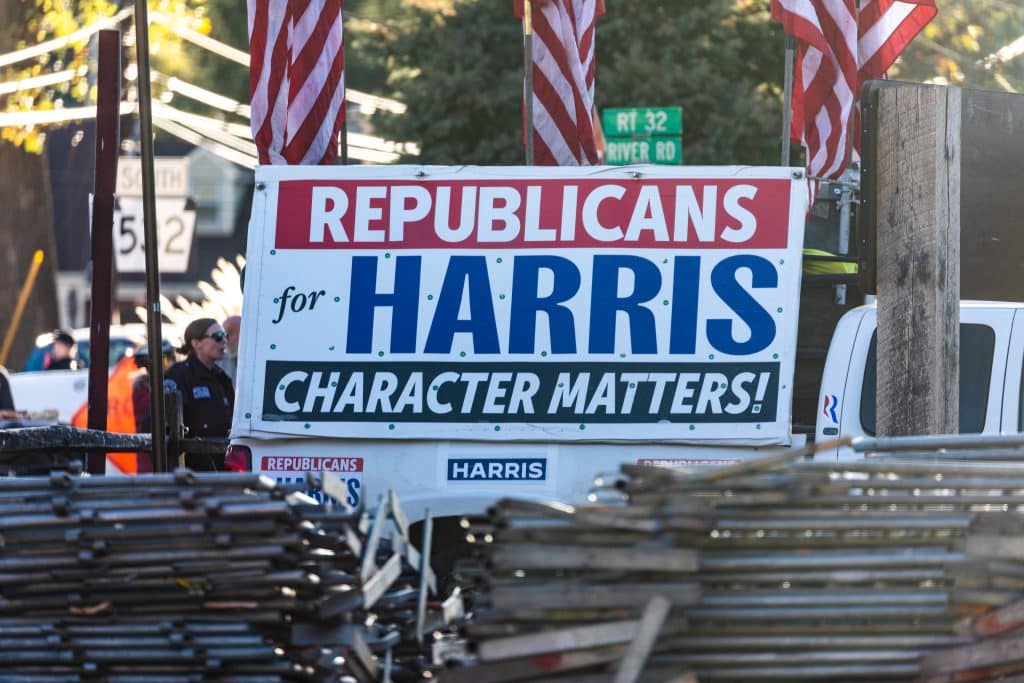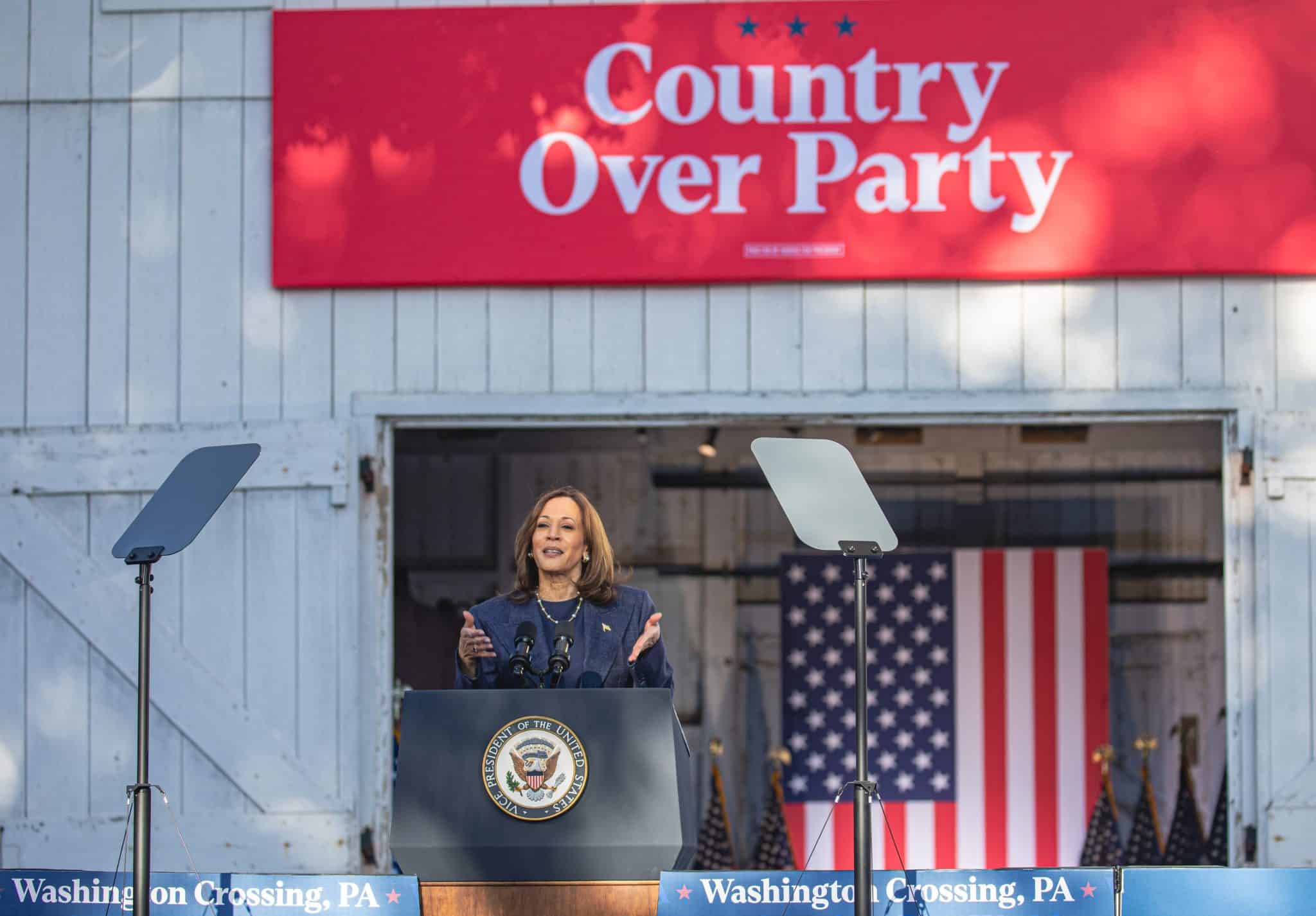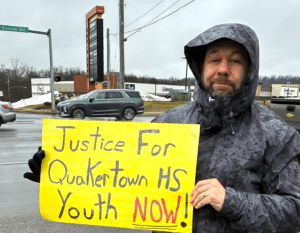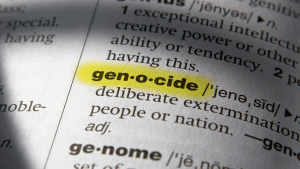It was a beautiful day in Washington Crossing, but Vice President Kamala Harris warned the crowd of about 400 that there will be difficult days ahead for the country if Donald Trump were to be reelected. In a rare display of bipartisan unity, Harris was joined by more than a dozen current and former Republican officials, signaling that this election was far from ordinary—and that the stakes were higher than many Americans realized.
One of the first speakers was Bucks County’s former Congressman Jim Greenwood.
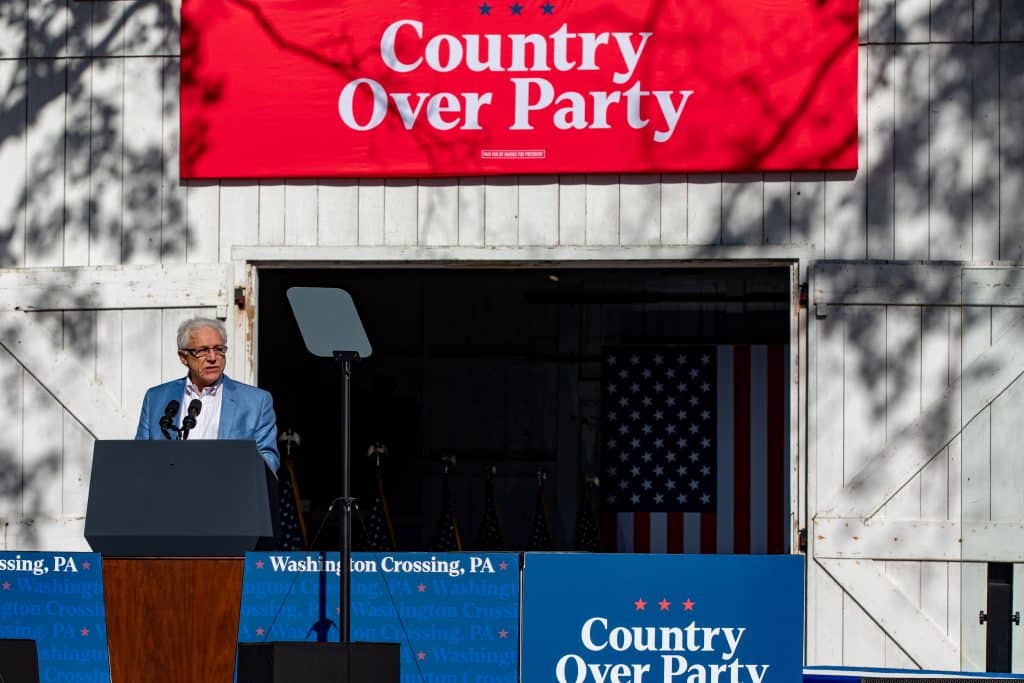
Delivering candid remarks, the 73-year-old Republican shared his dismay about the state of his party. “I’ve voted for every Republican candidate up to Mitt Romney,” Greenwood said. “And then came Donald Trump.” He called out Trump’s behavior as “malignant narcissism” and noted that while other Republicans would soon publicly endorse Harris, many more had confessed their opposition to Trump privately — fearing backlash if they spoke out.
Former Georgia Lieutenant Governor Geoff Duncan followed with an even sharper rebuke. “I care more about the future of this country than I care about Donald Trump,” he declared. “If we [the GOP] were being honest, we wouldn’t let him run a lemonade stand.”
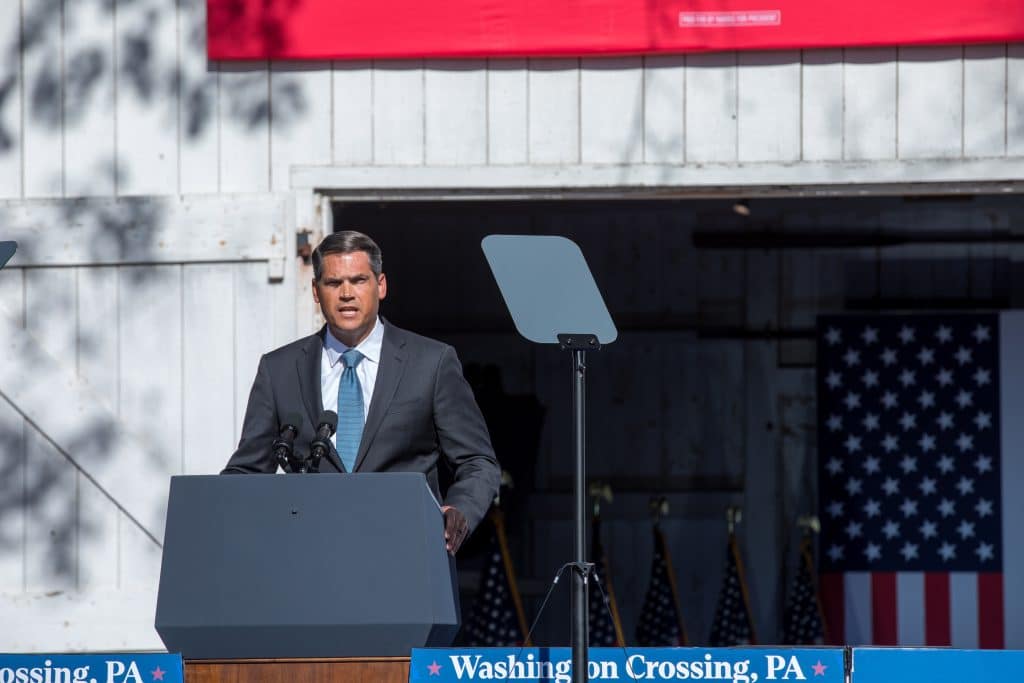
Duncan urged Republicans to embrace “housecleaning” by voting against Trump and supporting Harris. Listing Trump’s policy failures, he asserted, “Trump is the original RINO in my book. He’s a direct threat to democracy.”
Olivia Troye, a former counterterrorism advisor to Mike Pence, offered an insider’s perspective on Trump’s administration.
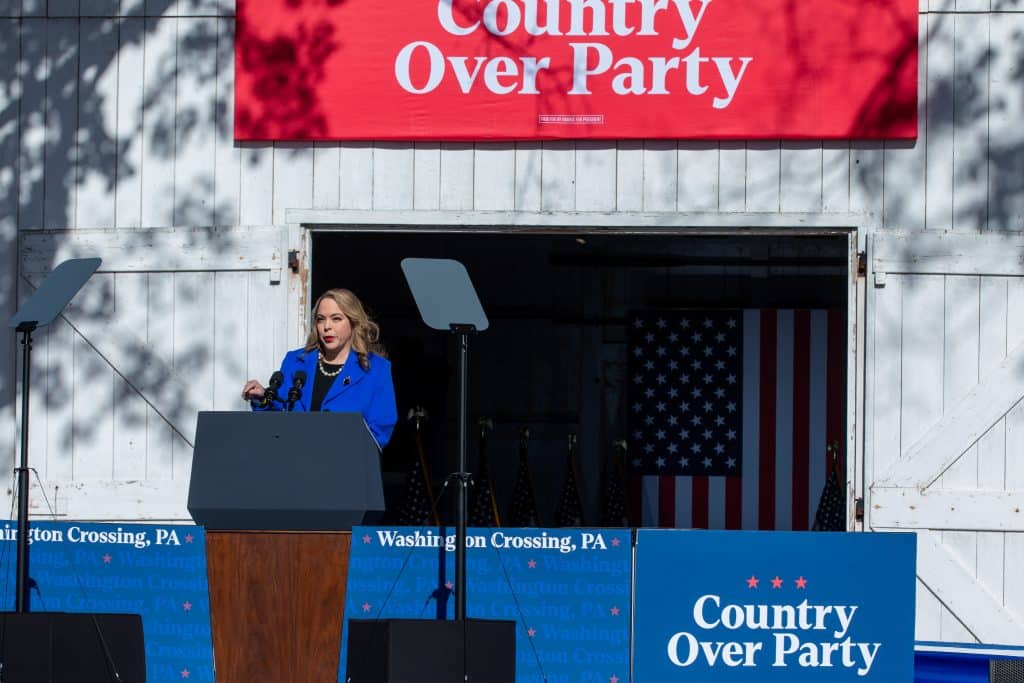
“Donald Trump’s North Star is Donald Trump,” she said bluntly. As an example, she cited a bipartisan border bill that could have addressed key voter concerns—only for Trump to sabotage it for political advantage. Referring to Trump’s self-proclaimed role as a “protector of women,” Troye scoffed, making clear she wasn’t buying it. Her message was resolute: electing Harris was essential.
Next up was for Congressman Adam Kinzinger, who like his former GOP colleague in the House Liz Cheney, was cast out from the current MAGA Republican Party for being one of just 10 House Republicans who voted to impeach former President Donald Trump following the January 6 insurrection. (Current Pennsylvania First District Congressman Brian Fitzpatrick was not one of them and has failed to speak out against Trump.)
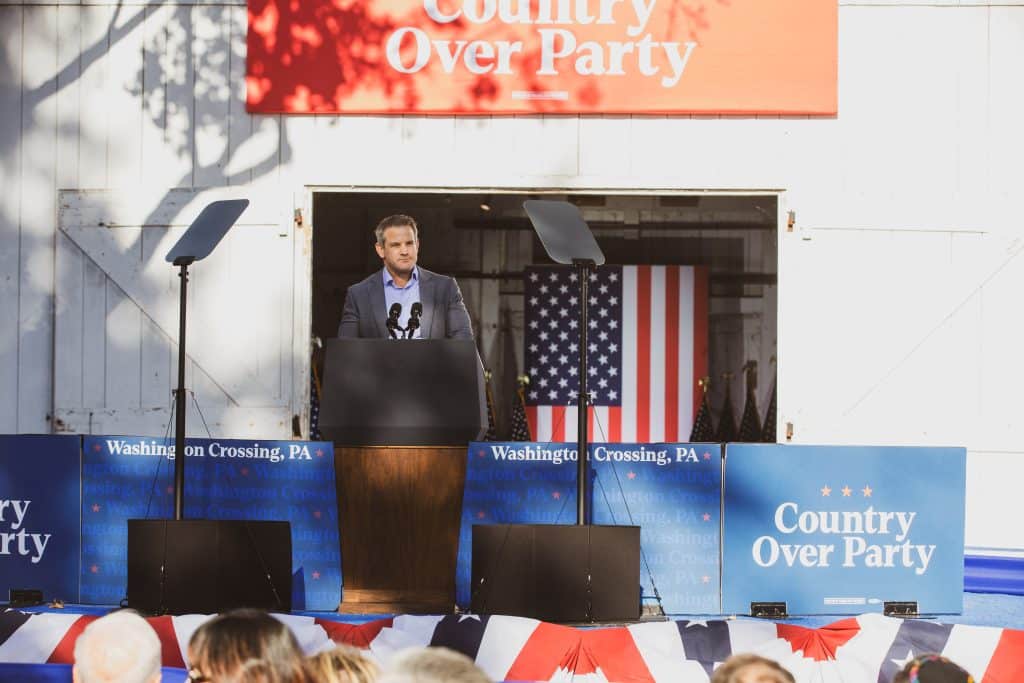
“You know, Donald Trump may be running as a Republican, but the truth is, he does not share those long held Republican values of supporting democracy, of standing for the rule of law, and a faithfulness to the Constitution as a Republican,” Kinzinger said. “That saddens me.”
But it wasn’t just Republican politicians who took the stage. Bob Lange, a fifth-generation Pennsylvania farmer, and his wife Kristina shared their story of disillusionment with Trump.
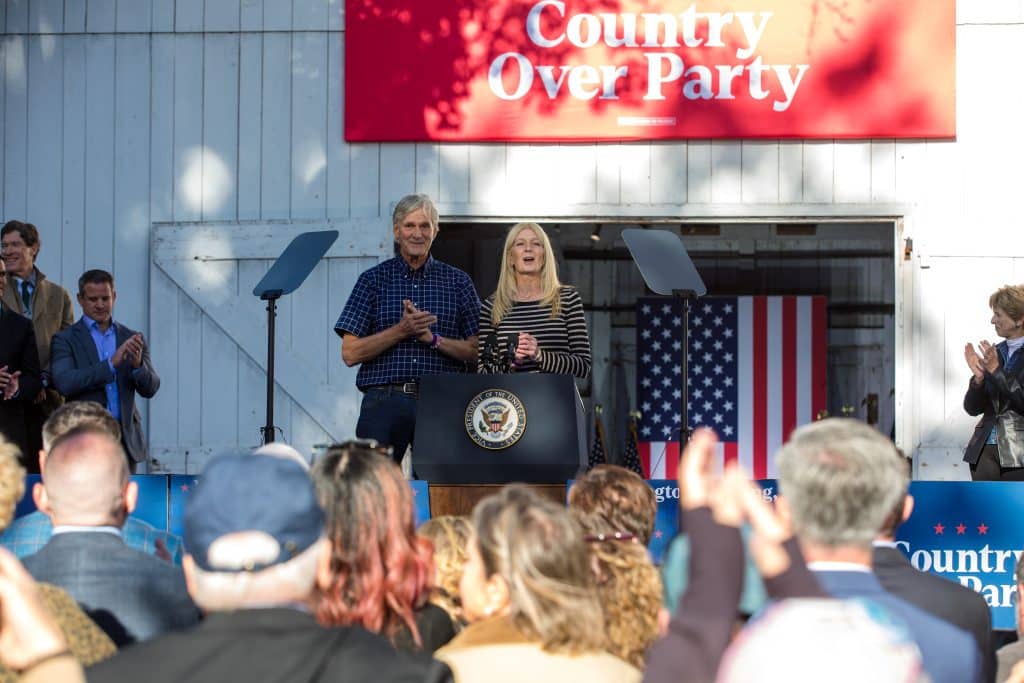
Bob admitted he had voted for Trump twice, while Kristina supported him once, adding with a laugh, “She was ahead of me on the learning curve.” Bob reflected on his changing views: “I thought he’d fight for people like us, but it’s clear he doesn’t care about hardworking Americans—or our Constitution.” He noted that the events of January 6th were the final straw for him. Kristina echoed his sentiments: “Never in a million years did we think we’d be here supporting a Democrat. But we’ve had enough.”
When it was finally Harris’s turn to speak, she greeted each Republican ally with warmth, turning what could have been an awkward moment into one of camaraderie.
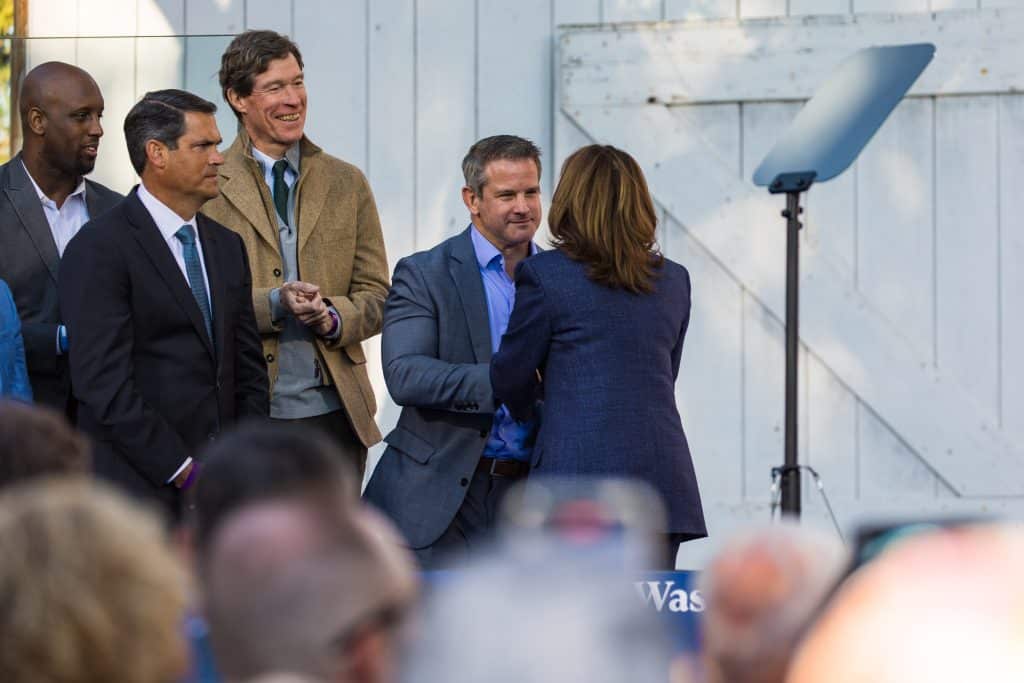
Acknowledging the strangeness of the situation with a laugh, she told the crowd, “This is not something you see every day,” earning cheers and shouts of “Thank you!” from attendees.
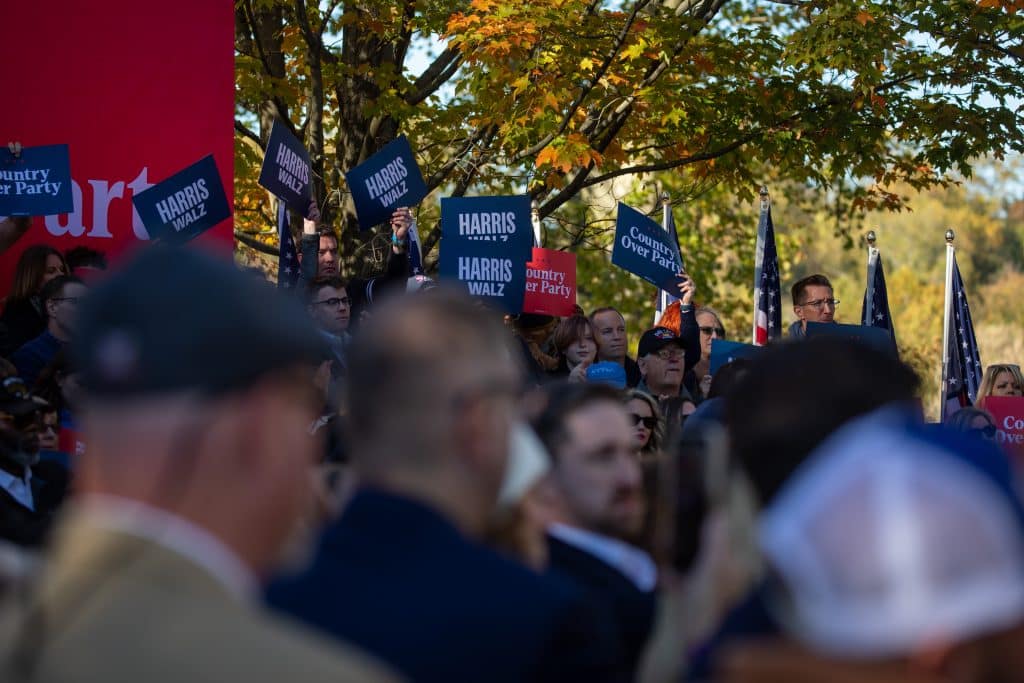
Harris praised her new allies for their courage, acknowledging the risks they faced—from threats of violence to blacklisting within the GOP—for opposing Trump.
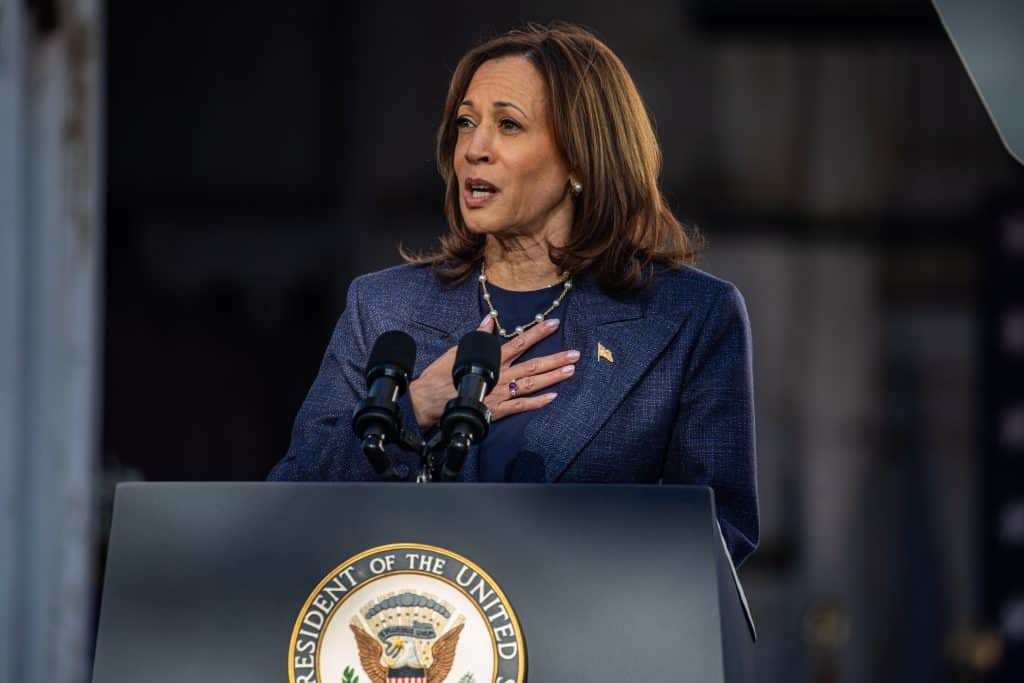
In her speech, Harris emphasized the importance of unity across party lines, sharing that good ideas are born on both sides of the aisle. “No matter your party, no matter who you voted for last time, there is a place for you in this campaign,” she said. “The coalition we have built has room for everyone who is ready to turn the page on the chaos and instability of Donald Trump.” Drawing on her experience as a prosecutor, Harris recalled, “I never asked victims which party they belonged to. I only asked, ‘Are you okay?’ And that’s how I’ll continue to serve as president.”
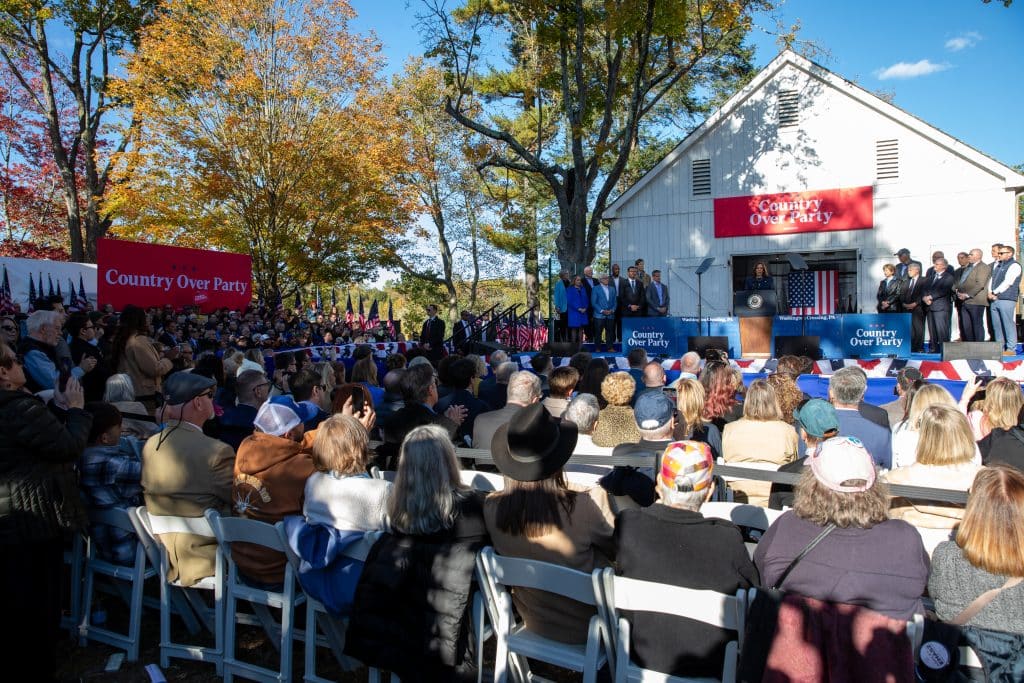
The event ended on a high note, with Harris expressing hope that the coalition she was building could rise above partisanship to protect the country’s future.
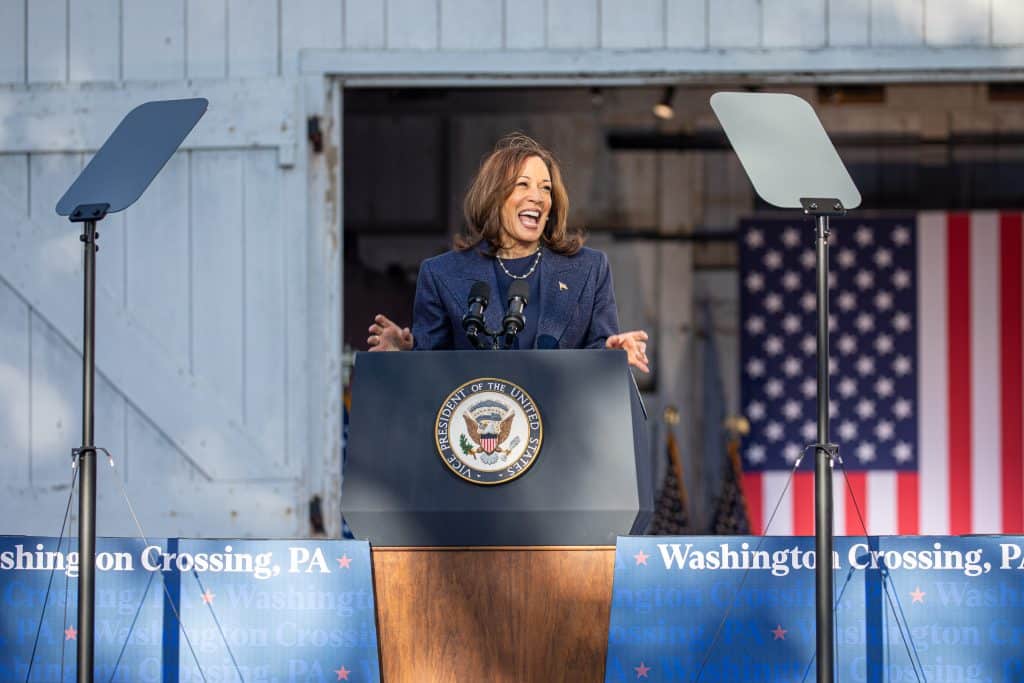
The day’s message was clear: this election was about more than party loyalty—it was about safeguarding democracy.
